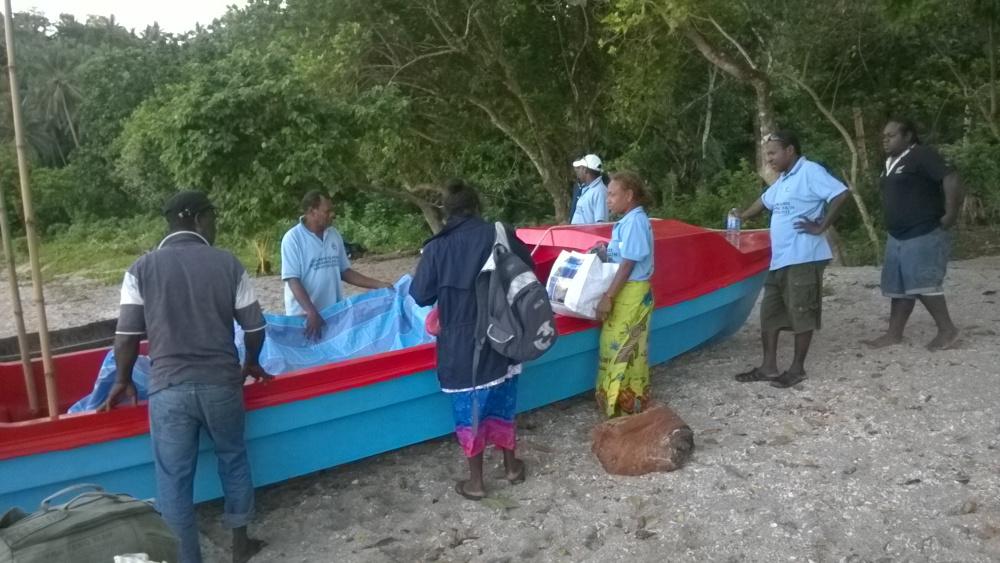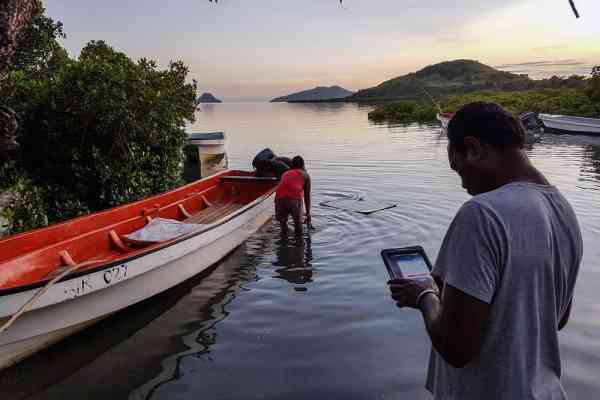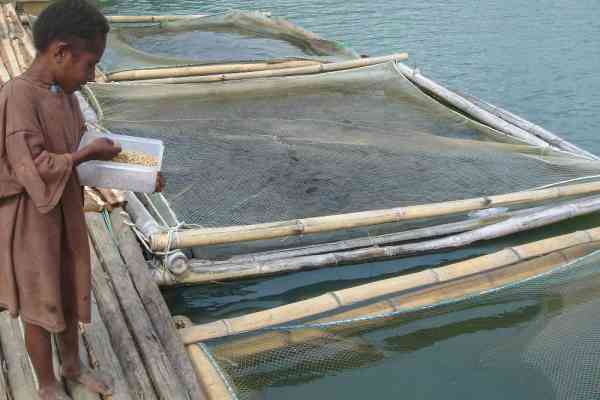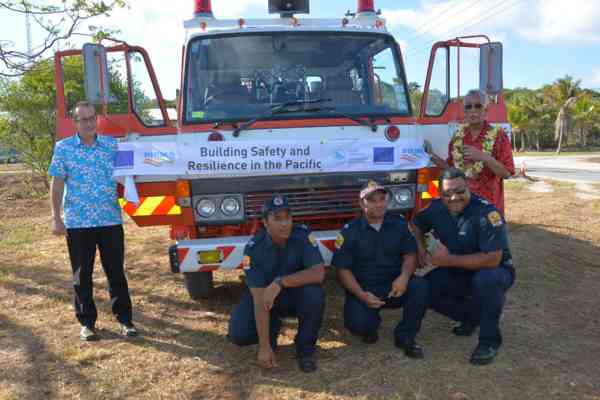Survey team load their boat for a data collection trip
Low back pain, arthritis, osteoporosis and other musculoskeletal problems can make it difficult for people to work and enjoy activities with family and friends. Addressing these healthcare issues requires a clear understanding of how many people are affected and the nature and severity of their disabilities.
A musculoskeletal survey, conducted as part of the 2015 Solomon Islands Demographic and Health Survey (SIDHS), was a first for the country and the world.
With technical assistance from the Pacific Community (SPC) and the Global Alliance for Musculoskeletal Health (G-MUSC), the government included eight questions about the condition of people’s bones, muscles and joints in the SIDHS. The questions were put to a sample of men aged 15 years and older, and women aged 15–49.
Results show that 17 per cent of people (15 per cent of men, and 19 per cent of women) said they had lower back pain in the previous four weeks and that it had limited their usual activities or changed their daily routine for more than a day.
The eight musculoskeletal questions were developed by G-MUSC and incorporated into the survey, which was conducted by the National Statistics Office and the Ministry of Health and Medical Services, with technical support from SPC’s Statistics for Development and Public Health divisions.
‘Musculoskeletal problems are one of the greatest contributors to the global burden of disease, but very limited information is currently available in the Pacific region’, said Co-Deputy Chair of the Global Musculoskeletal Alliance surveillance taskforce, and principal epidemiologist at SPC’s Public Health Division, Dr Damian Hoy. ‘Given the impact that poor musculoskeletal health has on people’s livelihoods, it’s important to develop a clear picture of the situation in the region and internationally’, Dr Hoy added.
The late Mrs Irene Kalauma, Director of the 2015 SIDHS, believed the results would provide a basis for how best to address these musculoskeletal problems. ’We hope also to inform the work of other governments around the world’, Mrs Kalauma said.
Fourteen teams conducted the fieldwork for the survey in April 2015. Training was provided with assistance from SPC’s Statistics for Development Division.
The survey can be replicated in health questionnaires around the world. ‘A great strength of this module is that it can simply be added to existing health surveys rather than creating a specific stand-alone musculoskeletal health survey’, Dr Damian Hoysaid.
Highlights:
- SPC and G-MUSC provided technical assistance for a world-first survey on musculoskeletal health in Solomon Islands.
- People were asked eight questions about the condition of their bones, muscles and joints.
- Survey results show that 17 per cent of respondents said they had experienced activity-limiting low back pain in the previous four weeks.
Links:
Learn more about musculoskeletal health.




